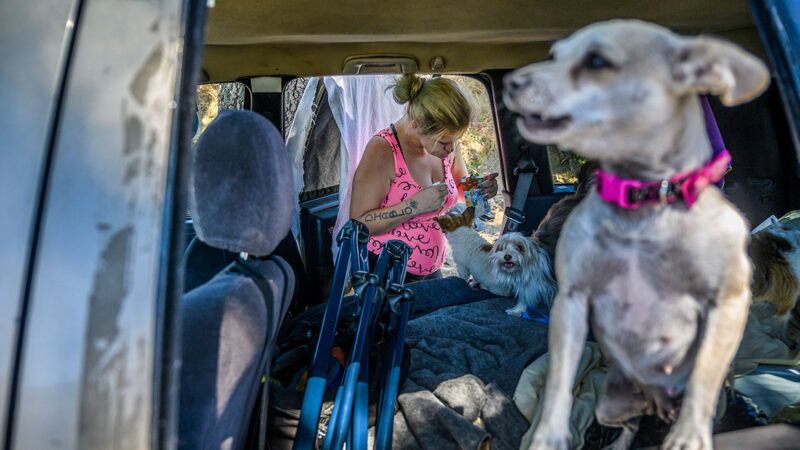You Can't Solve Homelessness by Making It a Crime
In an August ruling, Washington's Supreme Court found that a homeless plaintiff's truck qualified as his homestead.

A man's car is his castle. So declared the Washington Supreme Court, more or less, when it ruled last August that the city of Seattle could not impound a homeless man's truck and require him to pay nearly $550 in towing and storage costs. Nor could the city sell the man's truck, his sole source of shelter, at auction to pay off his debts.
The justices held that Seattle's practice violated the Eighth Amendment's prohibition of excessive fines and fees. It was one of the first times a state high court had applied the Excessive Fines Clause since the U.S. Supreme Court ruled in 2019 that it constrains the states.
The ruling was significant not just for Eighth Amendment jurisprudence but also for the rights of homeless people. The court found that the plaintiff's truck qualified as his homestead.
According to the court's opinion, there are nearly 12,000 homeless people in Washington's King County, more than 2,000 of whom live in vehicles. Cities across the country have been trying to deal with the public nuisance of tent camps and people living in their cars. But their solutions have amounted to little more than rousting indigent people from one spot to another.
The Justice Department announced in August that it was launching an investigation into potential civil rights abuses by the Phoenix Police Department. Among other complaints, it will look into allegations that Phoenix cops unlawfully seize or dispose of homeless people's belongings.
In October, the Miami City Commission enacted a ban on public camping. After facing criticism that they were criminalizing homelessness, the commissioners approved a sarcastic "adopt-the-homeless" program, offering support to Miami residents who want to help solve the problem by providing space in their homes. "If there are as many kindhearted people out there as some claim to be out there," Commissioner Joe Carollo said, "I would expect them to step up."
Cities don't make it easy for private charities to step up, however. In October the town of Brookings, Oregon, decreed that churches in residential zones—meaning every church in Brookings—would be allowed to serve food to the homeless just two days a week. The restriction was a response to neighbors' complaints about a local Episcopal church. The county has no homeless shelters, and the church was the only place offering hot meals seven days a week.
Cities have a legitimate interest in maintaining safety and livability. But that can't come at the expense of religious charity or respect for the dignity and rights of homeless people.


Show Comments (527)